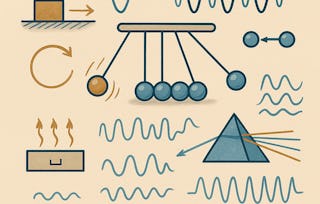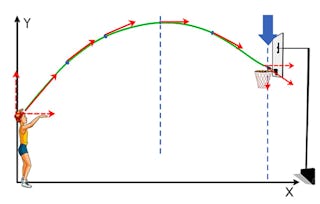This course introduces the notion of universality, whereby a large zoo of seemingly disparate systems can be described by the same theory. It introduces a powerful and widely applicable concept known as renormalization group which explains where this universality comes from. It introduces some paradigmatic frameworks underpinning condensed matter physics, including band structure and the quasiparticle concept.

Universal Theories

Universal Theories
This course is part of The Physics of Emergence: Introduction to Condensed Matter Specialization

Instructor: Rahul Nandkishore
Included with
Recommended experience
What you'll learn
Explain the concept of universality.
Describe the renormalization group and how it explains universality.
Explain metals and insulators
Skills you'll gain
Details to know

Add to your LinkedIn profile
See how employees at top companies are mastering in-demand skills

Build your subject-matter expertise
- Learn new concepts from industry experts
- Gain a foundational understanding of a subject or tool
- Develop job-relevant skills with hands-on projects
- Earn a shareable career certificate

There are 4 modules in this course
This module introduces the notion of universality and introduces the renormalization group.
What's included
11 videos1 reading2 assignments1 peer review3 discussion prompts
This module continues the presentation of the renormalization group and explains the emergence of universality.
What's included
10 videos2 assignments2 peer reviews5 discussion prompts
This module explores the basics of the Band Theory of Electrons.
What's included
9 videos2 assignments1 peer review4 discussion prompts
This module provides detailed discussion of metals and insulators.
What's included
8 videos3 assignments2 peer reviews4 discussion prompts
Earn a career certificate
Add this credential to your LinkedIn profile, resume, or CV. Share it on social media and in your performance review.
Instructor

Offered by
Explore more from Physics and Astronomy

Birla Institute of Technology & Science, Pilani
 Status: Free Trial
Status: Free TrialUniversity of Colorado Boulder
 Status: Preview
Status: PreviewUniversitat Politècnica de València
 Status: Free Trial
Status: Free TrialUniversity of Colorado Boulder
Why people choose Coursera for their career

Felipe M.

Jennifer J.

Larry W.

Chaitanya A.

Open new doors with Coursera Plus
Unlimited access to 10,000+ world-class courses, hands-on projects, and job-ready certificate programs - all included in your subscription
Advance your career with an online degree
Earn a degree from world-class universities - 100% online
Join over 3,400 global companies that choose Coursera for Business
Upskill your employees to excel in the digital economy
Frequently asked questions
To access the course materials, assignments and to earn a Certificate, you will need to purchase the Certificate experience when you enroll in a course. You can try a Free Trial instead, or apply for Financial Aid. The course may offer 'Full Course, No Certificate' instead. This option lets you see all course materials, submit required assessments, and get a final grade. This also means that you will not be able to purchase a Certificate experience.
When you enroll in the course, you get access to all of the courses in the Specialization, and you earn a certificate when you complete the work. Your electronic Certificate will be added to your Accomplishments page - from there, you can print your Certificate or add it to your LinkedIn profile.
Yes. In select learning programs, you can apply for financial aid or a scholarship if you can’t afford the enrollment fee. If fin aid or scholarship is available for your learning program selection, you’ll find a link to apply on the description page.
More questions
Financial aid available,
¹ Some assignments in this course are AI-graded. For these assignments, your data will be used in accordance with Coursera's Privacy Notice.

